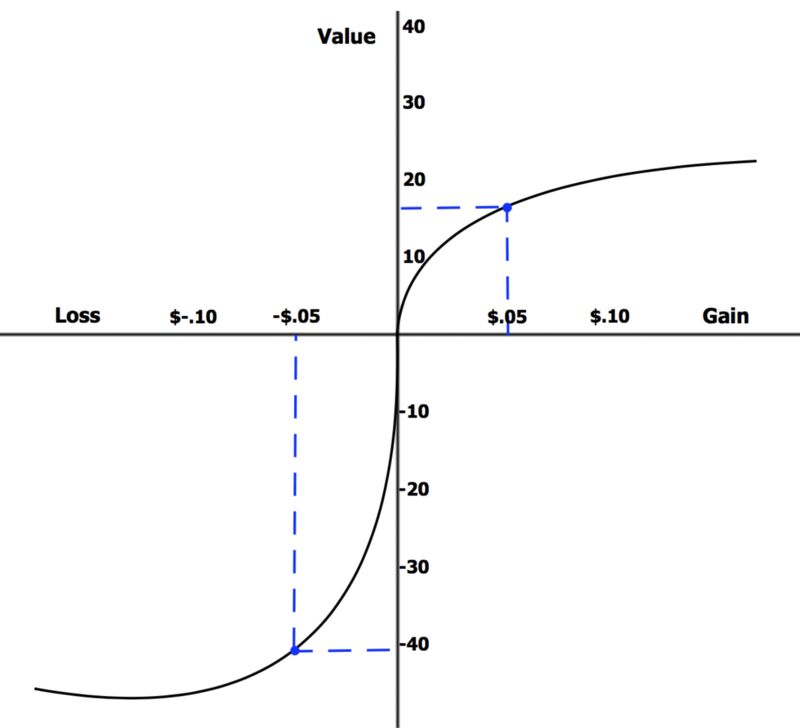The Prospect Theory introduced by Kahnemann and Tversky explains it best.

- People value perceived gains more than perceived losses.
- Loses has a bigger negative impact than wins.
- Having 2 equal options: 1. get $25. or 2. get $50 but then have to hand back $25. People would prefer the first one, as they don't like 'losing', even though they know they haven't lost anything.
What does that mean?
- Reward small gains and focus on wins and achievements to achieve scientifically proven bias into certain actions.
- Small gains make them more "certain" than big challenges. People avoid "probable" options when they have "certain" at hand.
- Starting something is more certain than finishing it: When building good habits, rewarding 'the starts' is more important than rewarding the end result.